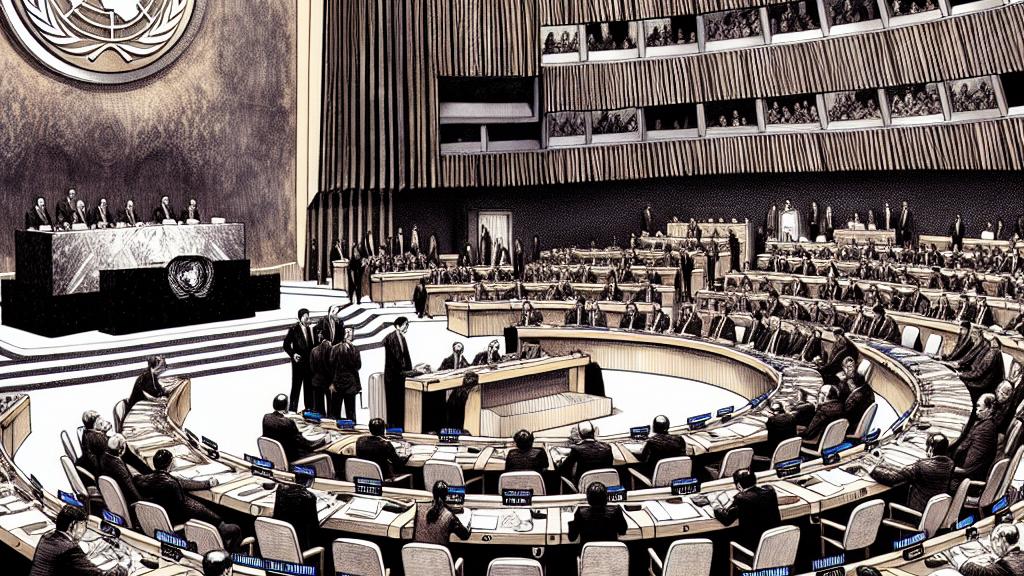U.N. General Assembly Votes on Resolution to End Israeli Occupation
Overview
- The U.N. is debating a significant resolution demanding Israel halt its occupation of Palestinian territories within a year.
- Ambassadors express starkly contrasting views, revealing deep divisions on the resolution's impact and legitimacy.
- Inspired by a recent International Court of Justice ruling, this measure aims to reshape international expectations regarding Israel's actions.

Context of the Resolution
In a pivotal moment for international diplomacy, the United Nations is currently engrossed in discussions about a resolution that calls for Israel to end its occupation of Palestinian territories within a year. This consideration arose on September 17, 2024, as tensions in Gaza and the West Bank have reached alarming levels. Just as violent encounters have escalated, so too has the humanitarian crisis, with countless civilians affected by ongoing strife. The resolution embodies not just a legal demand but represents the hopes of many who long for peace and a decisive end to military occupation. It seeks to formalize calls for Israel to stop expanding settlements, and it frames the broad expectations of the international community.
Responses to the Resolution
The discussion surrounding this resolution has sparked heated debates among member states, showcasing the stark divide in opinions. Israel's U.N. ambassador, Danny Danon, has labeled the resolution a dangerous and politically motivated move, claiming it serves as 'diplomatic terrorism' aimed at delegitimizing Israel. His passionate attack highlighted the complexity of the conflict when he stated, 'This resolution ignores the violent reality inflicted upon our people by Hamas.' In contrast, Riyad Mansour, the Palestinian U.N. representative, stressed the urgency of addressing the 'existential threat' Palestinian people face. He argued, 'Our call for justice is not merely a demand for land; it is rooted in our quest for dignity and peace.' This intense exchange captures the emotional weight and intricate histories that shape each side's perspective and the overarching challenge of achieving lasting peace.
International Legal Opinions
The call for this resolution is underpinned by a crucial advisory opinion from the International Court of Justice issued in July 2024, which deemed Israel's presence in occupied territories unlawful. While the U.N. resolution itself is not legally binding, it reflects a shift in global attitudes and amplifies pressure on Israel from the international community. Advocates believe this resolution could inspire meaningful change, as they envision it prompting Israel to consider modifications in its approach to the Palestinian territories. Additionally, the measure represents a vital opportunity for negotiation, suggesting that a more stable and humane environment is necessary for both Israelis and Palestinians. By fostering dialogues rooted in compassion and understanding, the globe can inch closer toward a future built on justice and mutual respect.

Loading...